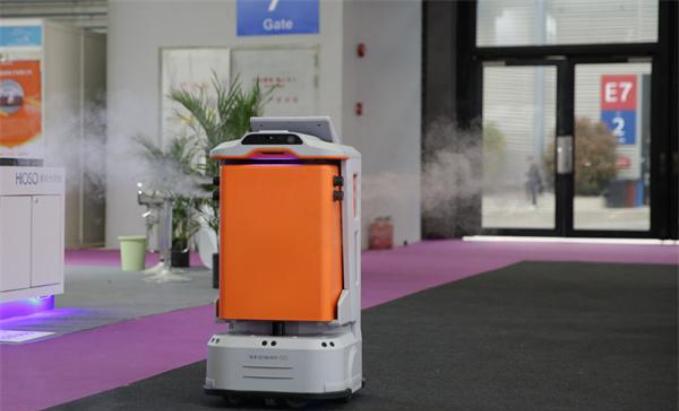Although, the large-scale development of hotel robots has been greatly affected by the epidemic. But fundamentally, there is an inevitability.
As a typical labor-intensive industry, labor costs account for a large proportion of hotel operating costs. Relevant data show that labor costs in the high-end hotel industry account for up to 50%. Even in budget hotels, this cost will account for more than 20%. With the gradual disappearance of China's future demographic dividend, the rise in labor costs will become an inevitable trend. The emergence of hotel robots can alleviate the pressure on hotel labor costs to a certain extent. With the continuous improvement of the production and technology of intelligent robots in large hotels, the cost of robots will become lower and lower.

Secondly, in recent years, the wave of consumption upgrading in various fields has struck, and consumers are more concerned about service temperature, efficiency and experience than ever before. This is also forcing the hospitality industry to innovate in services. Hotel robots can liberate people from heavy labor, do more warm things with heart, and provide conditions for hotel humanized services.
In addition to the price factor, the hotel also pays attention to the delivery of robots and the realization of other functions, in the application scenario, the No. 9 sugar cube delivery robot focuses on the delivery of goods. Point-to-point distribution is mainly achieved through local recording, such as providing and delivering guest supplies in the hotel scene, or transferring files in the office scene. Built-in adjustable compartments, can be configured as needed 1-4 compartments, and support the delivery of multiple orders at once, better meet the delivery needs of peak hours.
In addition, the No. 9 Sugar Cube delivery robot also supports a variety of customization functions: in different scenarios, different business models can be selected, such as takeaway delivery, express delivery, etc.; business parameters can be freely configured in specific modes, such as functional switches, verification methods, etc.; the No. 9 Sugar Cube delivery robot can also be configured to publicize hotel information and important tips, and achieve the purpose of information dissemination in the delivery process; it also supports appearance customization to display the brand characteristics of the hotel.
It is worth mentioning that the robot can also intelligently update the map and independently adapt to scene changes. At the same time, it supports multi-machine collaboration in the same scenario and distributes robot work on demand through cloud intelligent scheduling.
In fact, the No. 9 sugar cube delivery robot has become a "star" in the industry. It is the first robot in China to go public to sound a gong – in 2020, the No. 9 Sugar Cube Robot chimes its bell when No. 9 is listed.
Based on the current market demand and the future development prospects of hotel robots, Nine is fully prepared. Dong Jidong, general manager of the No. 9 Commercial Robot Division, said: "In the future, tourism pension is the trend of the times, and there will be more and more hotels. We are optimistic about the hotel market, but not just doing it. "Obviously, in addition to solving the indoor distribution problem, there are more commercial values to be explored by Company Nine.